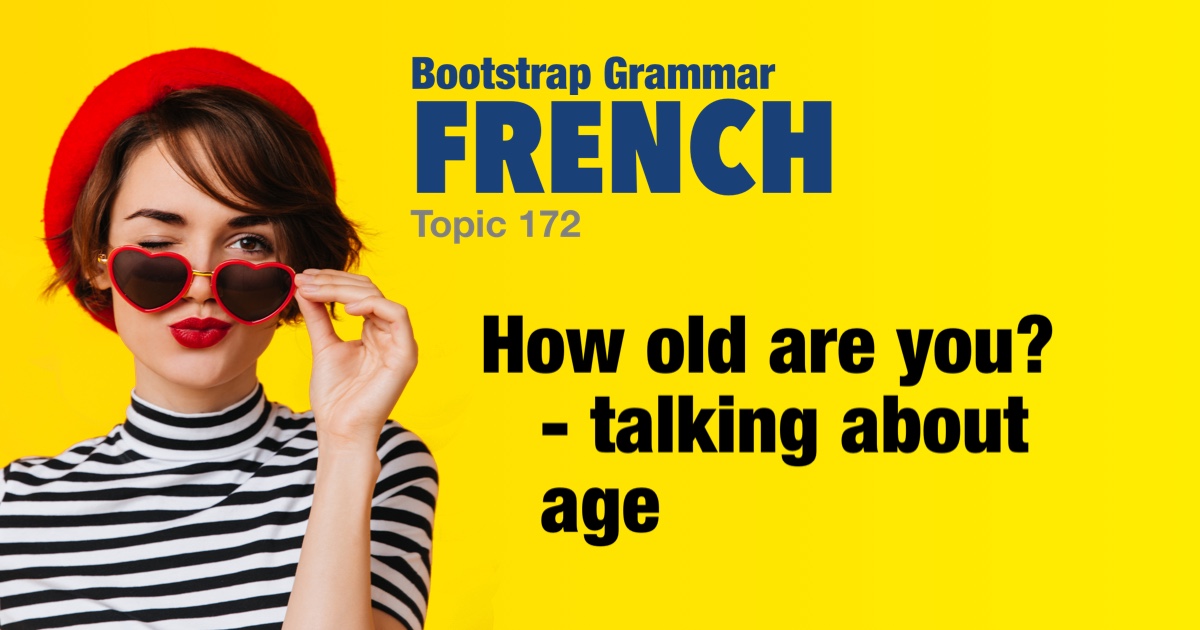French grammar - How old are you? - talking about age |
|||
|
|||
In French one 'has' an age - we use the verb avoir. -- We never drop the word an(s) when talking about age. And when talking about age in the past we use l'imparfait of avoir. Plus âgé is used to say 'older' and moins âgé to say 'younger'. |
| Examples: | |
|
Quel âge as-tu ?
How old are you (familiar)? |
|
|
J'ai vingt-et-un an.
I am twenty-one years old. |
|
|
Quel âge a-t-elle ?
How old is she? |
|
|
Ma mère a quarante-six ans.
My mother is forty-six. |
|
|
Vous me demandez quel âge j'ai ?
You (formal) ask me how old am I? |
|
|
Oui, puis-je vous demander votre âge ?
Yes, can I ask your (formal) age?
|
|
|
Savez-vous quel âge a Stéphanie ?
Do you (formal) know how old Stephanie is? |
|
|
En 2005, il avait 13 ans.
In 2005, he was 13 years old. |
|
|
Ma mère avait vingt-cinq ans quand je suis né.
My mother was twenty-five when I was born. |
|
|
Vous devez avoir plus de 18 ans pour conduire une voiture.
You (formal) must be over 18 to drive a car. |
|
|
J'ai encore moins de 18 ans.
I'm still under 18. |
|
|
Mon grand-père vient d'avoir 65 ans.
My grandfather just turned 65. |
|
|
Combien de semaines ont les bébés ?
How many weeks old are the babies? |
|
|
Ma mère est un peu plus âgée que mon père.
My mother is a little older than my father. |
|
|
Je suis beaucoup plus jeune que ma sœur.
I am much younger than my sister. |
|
|
Les enfants grandissent vite - quel âge ont-ils maintenant ?
The children are growing up fast - how old are they now?
|
|
|
Malheureusement, nous vieillissons en même temps.
Unfortunately, we age at the same time.
|
|
 |
|




